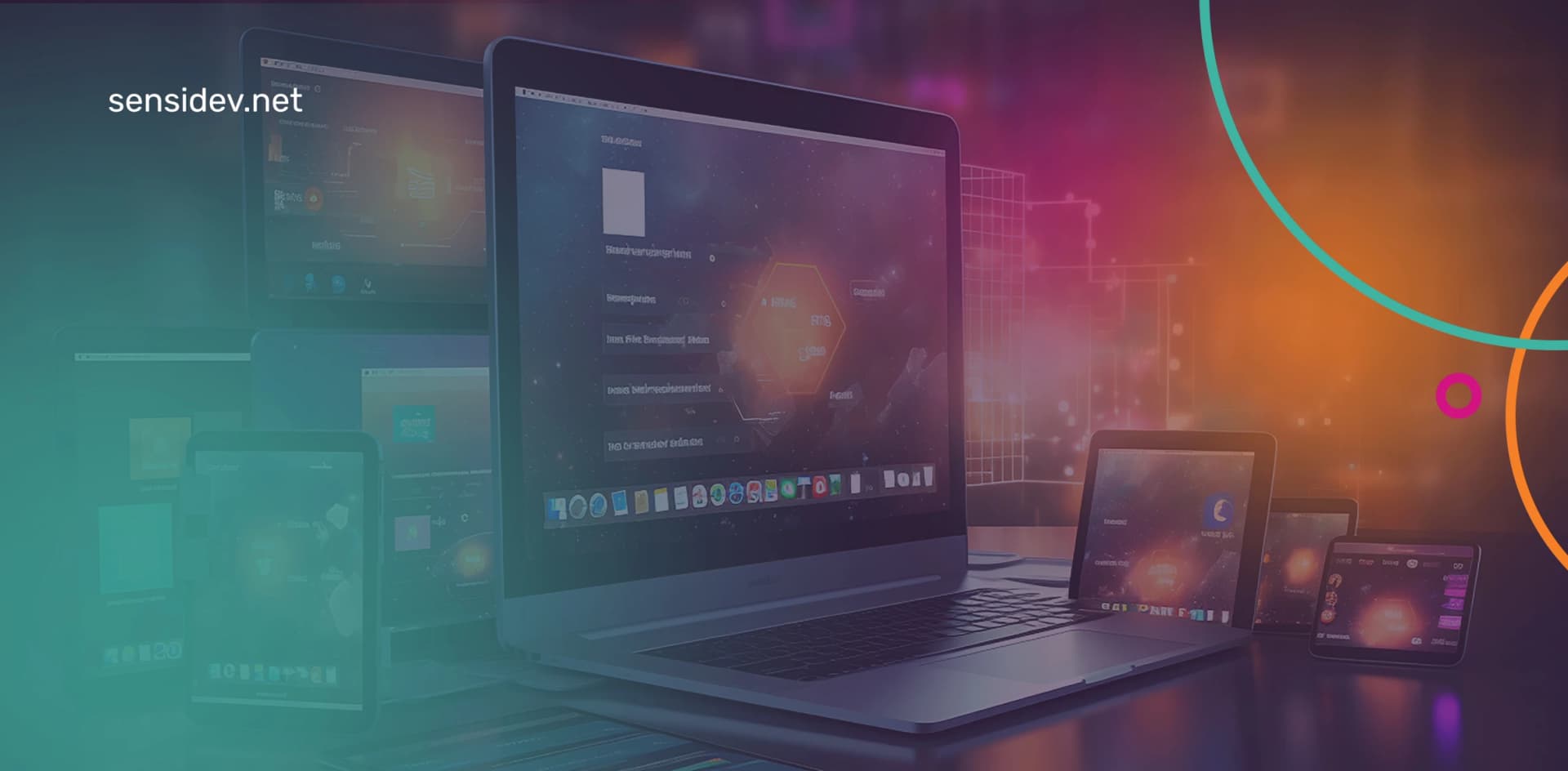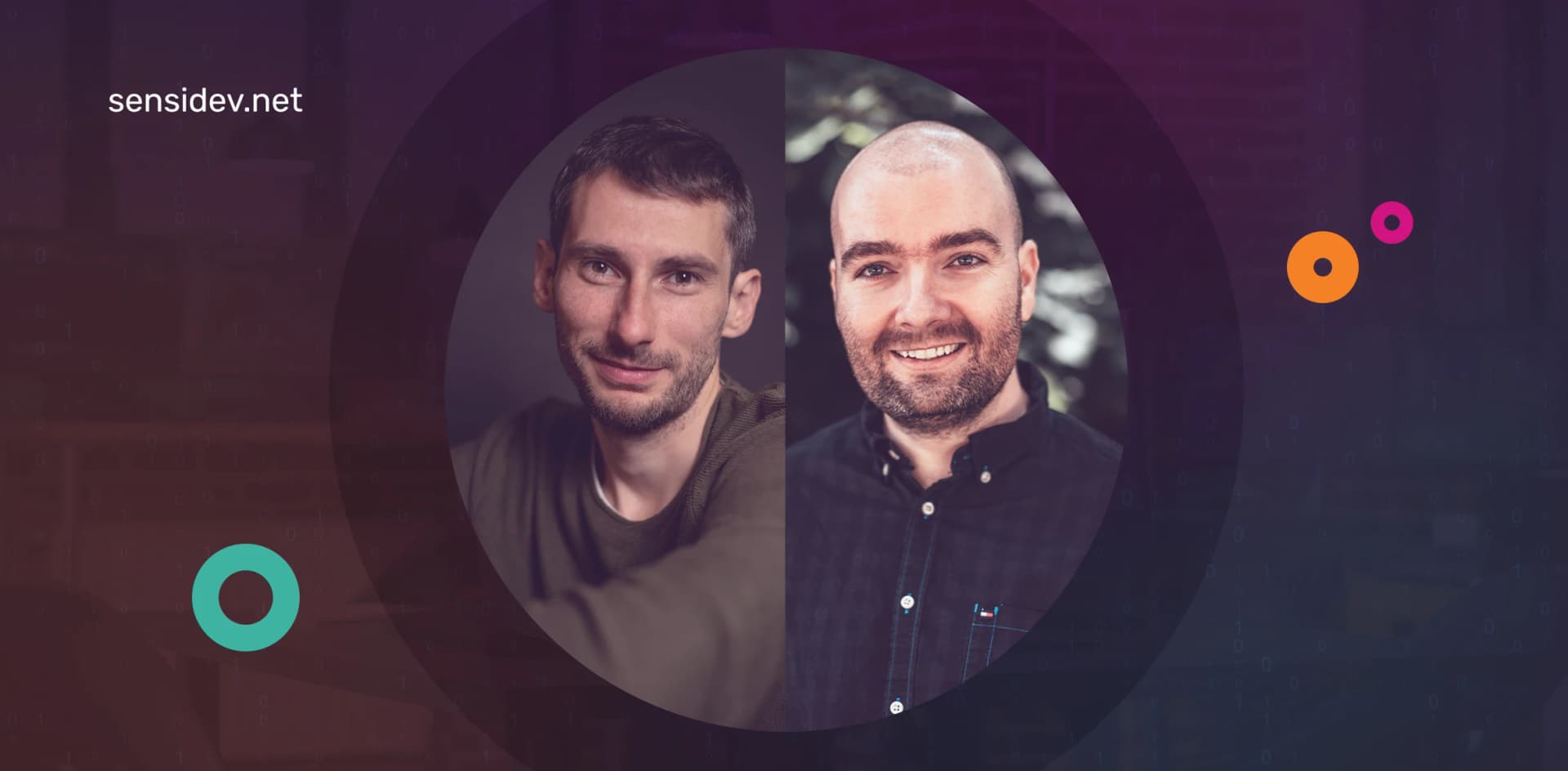
Wrapping Season with Sensidev
by Sensidev Team • over 3 years ago • 6 min read
One known aspect about the software development environment and business, in general, is that it’s a volatile industry. And that’s how we can best describe the year 2021.
With both highs and lows, we conquered this year through changes and we can admit that it has been one transformative year. The best part that comes from hardships and challenging times is that you learn to adapt and even discover new perspectives. So that’s exactly what we did. We reevaluated how we do things and how we can improve in order to guarantee a better future. Consistency and always moving forward ultimately leads to success, right?
Join us through an intense journey with challenges and results:
Our client approach is more strategic
This past year, we have started to expand our customer base in a very selective manner so that we keep everyone happy — especially our dev. team. How did we do this? Firstly by reaching out to as many potential clients as possible through a variety of channels like LinkedIn, AngelList, Clutch.co, SortList or DesignRush. Secondly, through quality networking. Industry events are a great medium to find suitable customers.
The big challenge is to filter those customers that do understand our software development process. In order to eliminate this barrier, we have released a couple of blog articles that address the most common questions our clients have.
Our first love is startups and highly enjoy the opportunity to work with them. On this page, this year presented two new customers that needed custom software development for an MVP, but they had a short time to market.
The challenge here is to help our customers understand how we build software and the tools we use to make our work organized and transparent for them: we deliver every day, by using agile techniques along with CI/CD tools.
The second type of customer we started to work with this year is represented by other big software agencies. Our services fit their exact need to extend their teams with new skilled developers, in order to deliver quality, on time. Here we did pay attention to see if there is a mutual cultural match, including the process they use for software development, remote work and flexible time. This kind of setup is also a big plus for us, as it helps us to develop new tech and soft skills by interacting with other dev teams. Challenges when working with big agencies can be in complex terms of contracts and administrative flows that they have, but this year’s lesson was learning to embrace them.
The third type of customer we like best is the one that has a long-running project, where we can build an in-house and self-organized team and further grow it on this strong foundation.
🔍 We must admit that there are many cases where we need to say NO, and we feel that it is healthy to do it this way. For instance, we don’t like to work project-based, at a fixed price, and do very complex estimations in the beginning. This is not how agile works for us, and we have learned to embrace this as well.
Let the experts do what the experts do
When business is gaining ground and the amount and complexity of tasks are expanding, it’s vital to expand your departments as well. Micro-managing and thinking that you and your current team can do all the jobs are not suggestive traits of successful businesses.
Therefore, this year we brought two more departments at Sensidev, while polishing our business offer to its most professional state.
And we let the experts do what the experts do ⤵
One of the most important departments we started this year is the Business Development Department. We now have Chris B. who is solely responsible for finding new clients and maintaining relationships with current clients. This helps us develop our business even more.
The second department we focused on this year is HR. We are currently looking to hire a Recruiter, to help us find the right developers to join our team and to grow the team. And in addition to that, we also have someone who is focused on the wellbeing of our #sensidevs, making sure they are happy and focused. Together, we’ve put together our company culture code and we’ve focused on the mental health of our collaborators.
The future is built on a larger technology stack
One of our prominent characteristics as a company is that we keep an innovative mindset and stay aligned both with future technology trends and market demand.
In doing so, we have expanded our technology stack with:
1. Backend development using Python (with Django) and Node.js (with Express.js). Python because we feel comfortable with it and we have a long experience using it for a range of small to complex projects. And it is the “most wanted” language according to the 2021 SO survey. Node.js because it is very accessible and easy to use for web developers, especially front-end developers that are skilled with JavaScript. And both these languages do integrate really well with cloud services where AWS is the top choice we are actually using.
2. Mobile native Android development — we are still looking to expand with these native mobile technologies, not only Android but also native iOS we need to consider. There are definitely apps where using cross-platform technologies like React Native (one of our favs) would not deliver an optimal UX. And of course, we’ve seen the demand from the customers for these technologies. In general, here we speak about large companies where we collaborate with other agencies to build apps with an amazing UX and performance.
3. Front-end web development with React, even if this one is not new I like to mention it because it remains the most popular and loved by our developers and even more according to SO survey it is the most used web framework.
And because we do a lot of JavaScript development, a notable mention would go to TypeScript that we find essential in order to develop scalable and continuously evolving projects. And after Python, TypeScript is 2nd most wanted by developers to work with.
4. QA Automation, for the frontend apps, is another technology requested by some of our customers and here the combination of choice was to use the well established Selenium framework along with Java and Bitbucket Pipelines.
New perspectives on our team
We are aware that everybody needs to start from somewhere and people need someone to trust them and give them a chance to prove themselves. Therefore, this year we started an experiment, implementing a mentorship program for juniors. Our plan was to hire juniors, pair them with more experienced mentors, integrate them into a team, so they can learn agile methodologies and ways of working, and afterwards move them to client projects.
This way, we can discover new talents, grow good developers and improve the trust of our clients, because we can guarantee that the code our developers deliver is awesome. This year we included in this program four junior developers (two React, one React Native, and one Python) and we are more than happy with the results. Our junior developers exceeded our expectations and we are very proud of this.
Next year, we plan to transform this experiment into a permanent project. We think this will be a win for everyone: for us, for the developers, for our clients and for this market as a whole.
Looking forward to an even more technology-rich year 🦾
Evolving is always on our list, so that’s the first thing on our 2022 agenda. Stay tuned for more innovative news on from the #sensidevs!
Web Development Agency Insights

The Future of Web Development: Trends to Watch in 2024
by Iulian Arabagiu • 9 months ago• 10 min read

Sensidev’s Origin Story: Taking the Leap from Stability to Innovation
by Sensidev Team • 10 months ago• 6 min read
